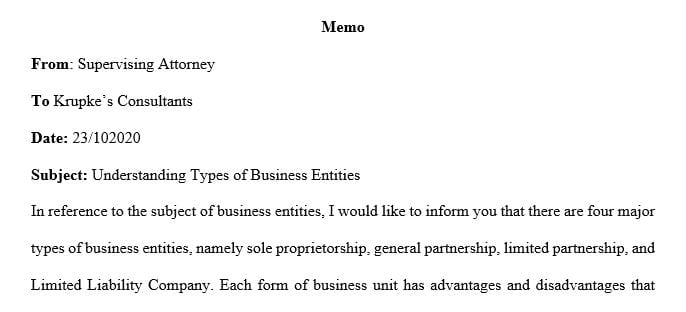Distinguish between the various types of business entities.
Purpose of Assignment: The purpose of this assignment is to understand the various entity types for businesses.
Course Competency: Distinguish between the various types of business entities.
Instructions:
Content:
Your client, Arthur Krupke, is back. He has approached your supervising attorney about his business, Krupke’s Consultants, and is ready to move forward with his business. The client will be hiring management consultants as employees to go into other businesses and advise them on how they can improve their operations. Arthur has been doing some of his own research about entity types, but would like assistance in forming his business. Arthur is concerned about his investment and his own personal assets should the business fail. He is also still worried about liability he may face for the actions of others. Arthur detests having decisions made for him. He likes to be involved in all business decisions. He is considering opening the business with a couple of friends, but his friends have the same concerns as Arthur about liability and control over business decisions. Your supervising attorney has asked you to draft a memo detailing all the pros and cons of the following entity types for Arthur:
General Partnership
Limited Partnership
Limited Liability Company
In addition to explaining the pros and cons, you should make a recommendation of which entity would work best for Arthur’s concerns, and describe the process for forming the business as that entity.
Answer preview to distinguish between the various types of business entities.
APA
634 words
Get instant access to the full solution from yourhomeworksolutions by clicking the purchase button below


